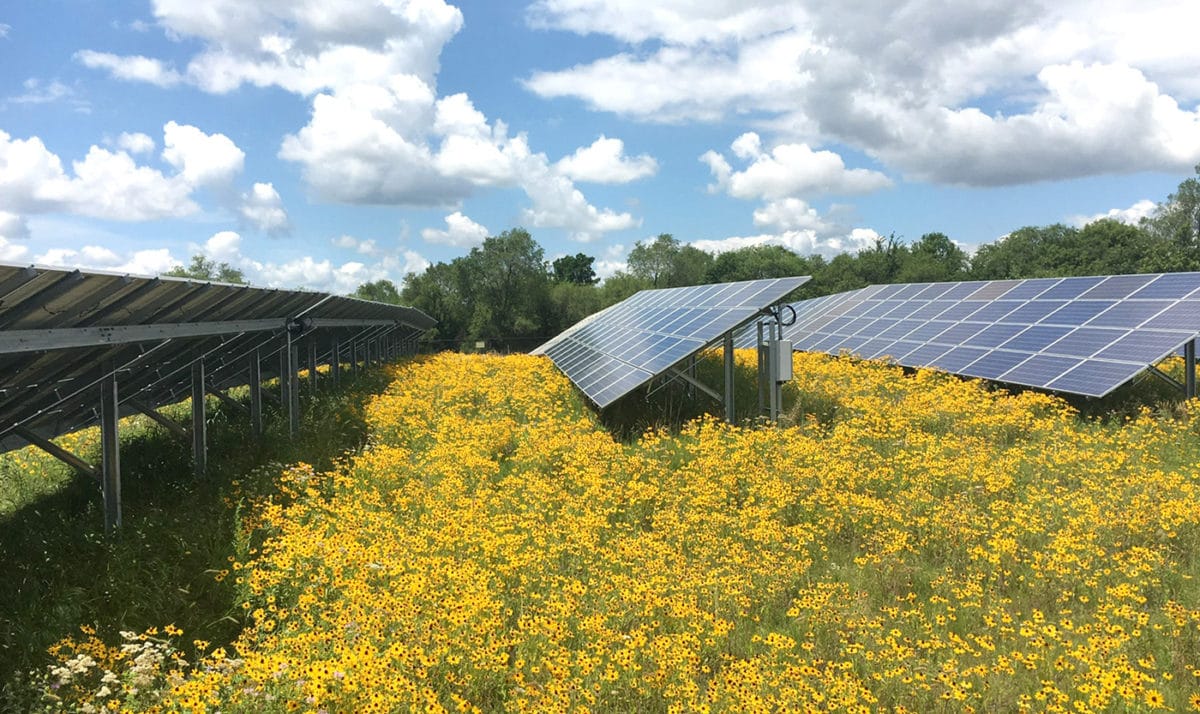From pv magazine USA
As part the US government's “Investing in America” agenda, the Department of Energy (DoE) announced $45 million in funding, including $18 million from the Bipartisan Infrastructure Law, to support pilot manufacturing of solar components.
The Investing in America agenda intends to bring manufacturing back to America after decades of offshoring, which will relieve the US dependence on foreign countries for imports, but will also create new, good-paying jobs.
The funding to bolster manufacturing for the solar sector supports the Biden Administration’s goal of reducing carbon emissions in the United States by roughly 40% in 2030. Specifically, it will support the development of new dual-use solar technologies such as agrivoltaics and building-integrated photovoltaics (BIPV) to create new markets for American products.
“President Biden’s Investing in America agenda has led to a surge of solar manufacturing announcements and has created thousands of good paying, union jobs in solar deployment,” said US Secretary of Energy Jennifer M. Granholm. “With these innovative, made-in-America technologies, the Biden-Harris Administration is powering the clean energy transition, lowering electricity costs for hardworking Americans, and protecting the future for our children from the impacts of the climate crisis.”
Agrivoltaics, BIPV, floating PV, and vehicle-integrated PV are all examples of dual-use solar in which solar is generated in an application that can serve a secondary purpose. By integrating solar energy systems into existing landscapes, such as in agrivoltaics, which pairs solar with agricultural use, dual-use PV has the potential to minimize land-use challenges.
To date there have been 63 domestic manufacturing announcements across the solar supply chain since the beginning of the Biden administration, according to the DoE. More than 40 of these have been announced since the signing of the Inflation Reduction Act just about one year ago. One these facilities are operational, they will contribute important domestic components needed for the build out of a clean energy industry in the United States while also creating jobs, simplifying shipping and logistics, and reducing supply chain uncertainty.
The Silicon Solar Manufacturing and Dual-use Photovoltaics Incubator funding opportunity will:
- Fund up to 12 projects to help establish a network of manufacturers across the domestic solar supply chain focused on polysilicon production, silicon ingots and wafers, solar cells, glass and other module components, and associated manufacturing equipment.
- Fund projects that will aim to open new markets for the emerging dual-use PV sectors, in particular agrivoltaics, building-integrated PV, floating PV, and vehicle-integrated PV.
- Create opportunities to develop domestically made products capable of expanding PV markets and reducing greenhouse gas emissions, through dual-use technologies.
An informational webinar will be held on July 12 at 4 p.m. (ET). Mandatory concept papers are due by Sept. 27, 2023, at 5 p.m. (ET). Register for the webinar here.
This content is protected by copyright and may not be reused. If you want to cooperate with us and would like to reuse some of our content, please contact: editors@pv-magazine.com.




1 comment
By submitting this form you agree to pv magazine using your data for the purposes of publishing your comment.
Your personal data will only be disclosed or otherwise transmitted to third parties for the purposes of spam filtering or if this is necessary for technical maintenance of the website. Any other transfer to third parties will not take place unless this is justified on the basis of applicable data protection regulations or if pv magazine is legally obliged to do so.
You may revoke this consent at any time with effect for the future, in which case your personal data will be deleted immediately. Otherwise, your data will be deleted if pv magazine has processed your request or the purpose of data storage is fulfilled.
Further information on data privacy can be found in our Data Protection Policy.